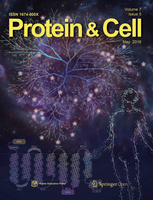 A new letter signed by 20 researchers is casting additional doubts on the validity of a potentially invaluable lab tool — and alleges the lab that produced the initial results turned them away when they tried to replicate its findings in mammalian cells.
A new letter signed by 20 researchers is casting additional doubts on the validity of a potentially invaluable lab tool — and alleges the lab that produced the initial results turned them away when they tried to replicate its findings in mammalian cells.
In a letter published this week in Protein & Cell, the researchers add their voices to the critics of the gene-editing technique, first described earlier this year in Nature Biotechnology.
The researchers outline their attempts to apply the technique — known as NgAgo — to a variety of cell types, which fell short:
None of these studies proves that NgAgo has any genome editing activities.
The lead author on the Nature Biotechnology paper, Han Chunyu at Hebei University of Science and Technology in China, has noted that using the technique requires “superb experimental skills,” and is affected when mycoplasma or bacteria are present in the culture. The authors of this week’s letter counter that:
…it seems unlikely that independent laboratories would all have their cells contaminated, resulting in consistently negative results for DNA editing activity. In fact, several of the signees of this letter have made sure that our cells are free of mycoplasma by first testing them before performing replication experiments.
The key point of paper by Gao et al is that DNA-guided NgAgo’s can efficiently target 47 genomic loci with a 100% success rate and a ≥20% efficiency. Neither the originally published protocol nor the newly released information on Addgene’s website involves any steps that seem to require “superb experimental skills”.
Also troubling, the critics report this week:
To gain insights into NgAgo’s utility, some of us have even sent visiting researchers to Han’s laboratory but they were not allowed to perform genome editing experiments involving mammalian cells when they were there. Consequently, none of them returned with any information confirming Han’s data.
We did some digging into the story last month, at which time a representative of Nature Publishing Group told us it is investigating the paper; when we recontacted them this week, they said they had nothing to add to a statement they sent us last month:
Nature Biotechnology takes any concerns that are raised about any paper seriously and considers them carefully. The journal has been contacted by several researchers who say that they have not been able to reproduce this study. The journal is continuing to follow established process to investigate the issues and has no further update at this time.
Questions have been circling around the results of “DNA-guided genome editing using the Natronobacterium gregoryi Argonaute” for months, as Nature reported in August:
Han says he receives dozens of harassing calls and texts each day, mocking him and telling him that his career is over — but he is convinced that the technique is sound….The stakes are high. Over the past few years, the CRISPR–Cas9 system has transformed biology. But it has also made scientists hungry for other methods to expand the gene-editing toolkit: NgAgo is one of several that have emerged. “A lot of us are really cheerleading and hoping that it works,” says geneticist George Church of Harvard Medical School in Boston, Massachusetts.
As this Global Times article reported in October:
According to [Hebei University of Science and Technology], NgAgo is the first Chinese-invented top-notch biotechnology, breaking the foreign monopoly on genome editing processes. The technology has extensive applications for agriculture and medicine, including in gene therapy for diseases like AIDS and hepatitis B.
We’ve contacted Han, and will update if he responds.
Hat tip: Gaetan Burgio
Like Retraction Watch? Consider making a tax-deductible contribution to support our growth. You can also follow us on Twitter, like us on Facebook, add us to your RSS reader, sign up on our homepage for an email every time there’s a new post, or subscribe to our daily digest. Click here to review our Comments Policy. For a sneak peek at what we’re working on, click here.
Let him demonstrate his confidence in this system by replicating the experiment as a guest in another lab – perhaps Harvard could offer to host him for a couple of weeks, so that he could show them how to upgrade their experimental skills?
Darling you got to let me know
Should I STAP or should I NgAgo?
One hates to think about the thousands of man hours and millions of dollars wasted by so many groups trying to apply this “revolutionary discovery”.